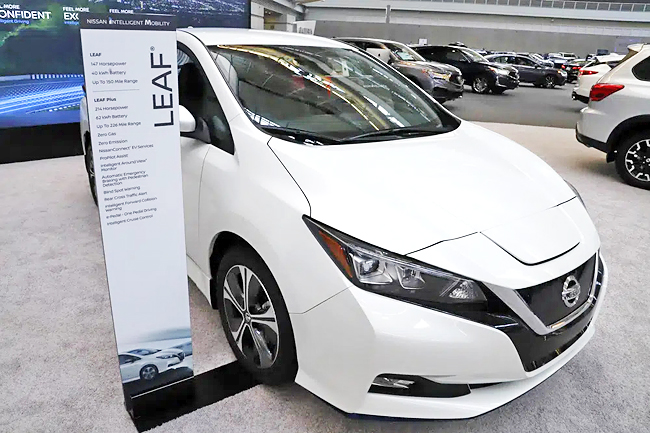TOKYO (AP) – Japanese automaker Nissan is revving up its electrification shift and slashing costs by using the same components across models and reducing use of expensive rare materials.
Nissan Motor Co presented its “X-in-1” development strategy yesterday, in which the X stands for various powertrain parts such as an electric motor and inverter that can be used across models. The company said development and manufacturing costs will be reduced by 30 per cent in 2026 compared to 2019 levels.
The Yokohama-based automaker was a pioneer in electric vehicles but rivals like Tesla and BYD of China have overtaken it.
As the move toward ecological models gains momentum around the world, driven by worries over climate change, Nissan has been eager to showcase its prowess.
Its senior vice president, Toshihiro Hirai, acknowledged that prices of rare earths and other materials needed to make electric vehicle batteries and other parts are expected to rise in coming years. That means automakers must have a solid strategy for obtaining raw materials if they hope to succeed in electrification.

“We make the most of our expertise and know-how from our more than a decade-long development and production of electrified technologies,” said Hirai.
Compared to the first-generation vehicle the Leaf, rare materials account for 25 per cent of the weight of the 2019 Nissan Note EV. Nissan aims to make that one per cent or less.
Nissan, which also makes the March subcompact and Infiniti luxury models, is working on solid-state battery technology for EVs, a move that if successful is expected to radically reduce costs. By 2030, Nissan’s EV offerings will cost about the same at dealers as the equivalent regular gasoline-engine models, Hirai said.
The cheapest EVs like the Leaf now sell for under USD30,000, although small internal-combustion engine cars are cheaper, at about USD21,000 for the Nissan Sentra in the United States.
A Tesla Model 3, a relatively affordable model for a Tesla, sells for about USD43,000.
But EVs are usually eligible for tax credits and other incentives. High gasoline prices might make EVs a smart buy in the long run.
An analysis last year said that based on the gas price at that time of USD4.31 a gallon, EV owners could save between USD1,800 and USD2,600 in operating and maintenance costs for every 15,000 miles.



















































